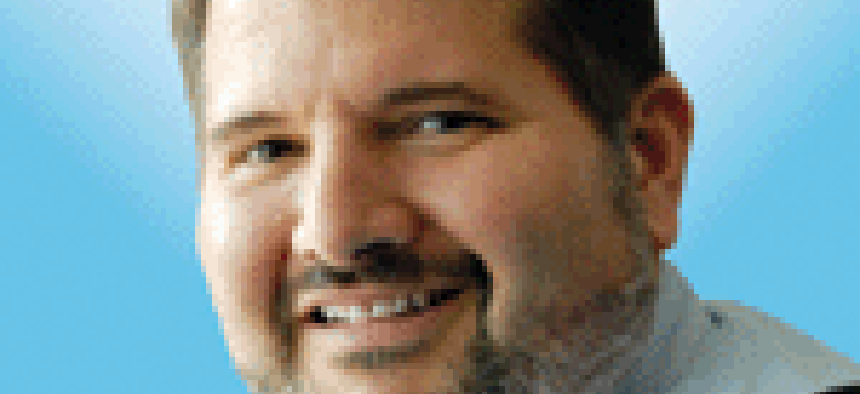How COVID-19 could reshape classified work

Mark Testoni, CEO of SAP NS2, says the lockdown surrounding COVID-19 is forcing changes in how work gets done in the classified space and sees it as a good thing.
As government contractors and their customers move toward a new normal, an area ripe for discussion on what that normal could look like is how classified work gets done.
There’s been a slowdown in work on classified systems and operations because of the requirement that work take place at secure locations. The question moving forward is whether all of the work needs to be done in a classified setting.
“There is a lot of work that can be done in the unclassified space and then move inside,” said Mark Testoni, CEO of SAP National Security Services.
Testoni told me the company is talking to intelligence customers about an approach that would allow developers to work outside of a classified space. That way, he says there can be more collaboration and then bring a nearly-finished product or function inside the secured space when access to classified data is needed.
“We need to size what needs to be done behind the walls and what can be done outside,” he said.
The coronavirus pandemic forcing so many to work remotely is one driving factor, but Testoni also said the intelligence community and its contractors need to look forward.
“When you start looking at the next generation of employees coming along, they want to have their phones and access to technology,” he said. “We have to look at where innovation is being done.”
Commercial markets such as the financial services industry can offer lessons. “Highly secure work is not solely the domain of the government,” Testoni said.
The conversation needs to take place at the leadership level. “It’s hard to contemplate an environment where you have so many people that need to work behind walls,” he said. “We are having these conversation now with some customers.”
What will stay behind the walls is the data, the analytics and the data collection, Testoni said.
The key is creating an acceptable level of security and risk. NS2 has changed itself. For example, it learned that some parts of its secured cloud could be operated remotely, he said. “It’s a big philosophical question.”
New technologies also are disrupting the space and particularly 5G. “I think we need to reinvent the way we look at security anyway because there’s going to be new capabilities,” Testoni said.
A world where a person can access classified information on a personal device is a real possibility. “We need to be thinking about that now and not be waiting for it to land on our lap,” he said. “It’s a competitive issue with our peers like China and Russia.”
A lot the changes Testoni sees coming are as much about cultural challenges as they are about technology.
“It’s not that everything needs to change but we need to be strong enough and secure enough in ourselves as leaders, because what we are talking about is cultural change,” he said.
SAP NS2 set up its SAP NS2 Labs organization to help customers work through the technology and cultural changes. The company is holding regular hack-a-thons to address challenges and those sessions have laid the ground work for new solutions and potential product offerings.
While the coronavirus has had an impact, Testoni said he’s satisfied how his business has fared so far in 2020 and some of the changes will be good over the long term. The combination of a virtual staff and in-person workforce has great potential once offices are reopened.
“I think it can be a force multiplier,” he said.
